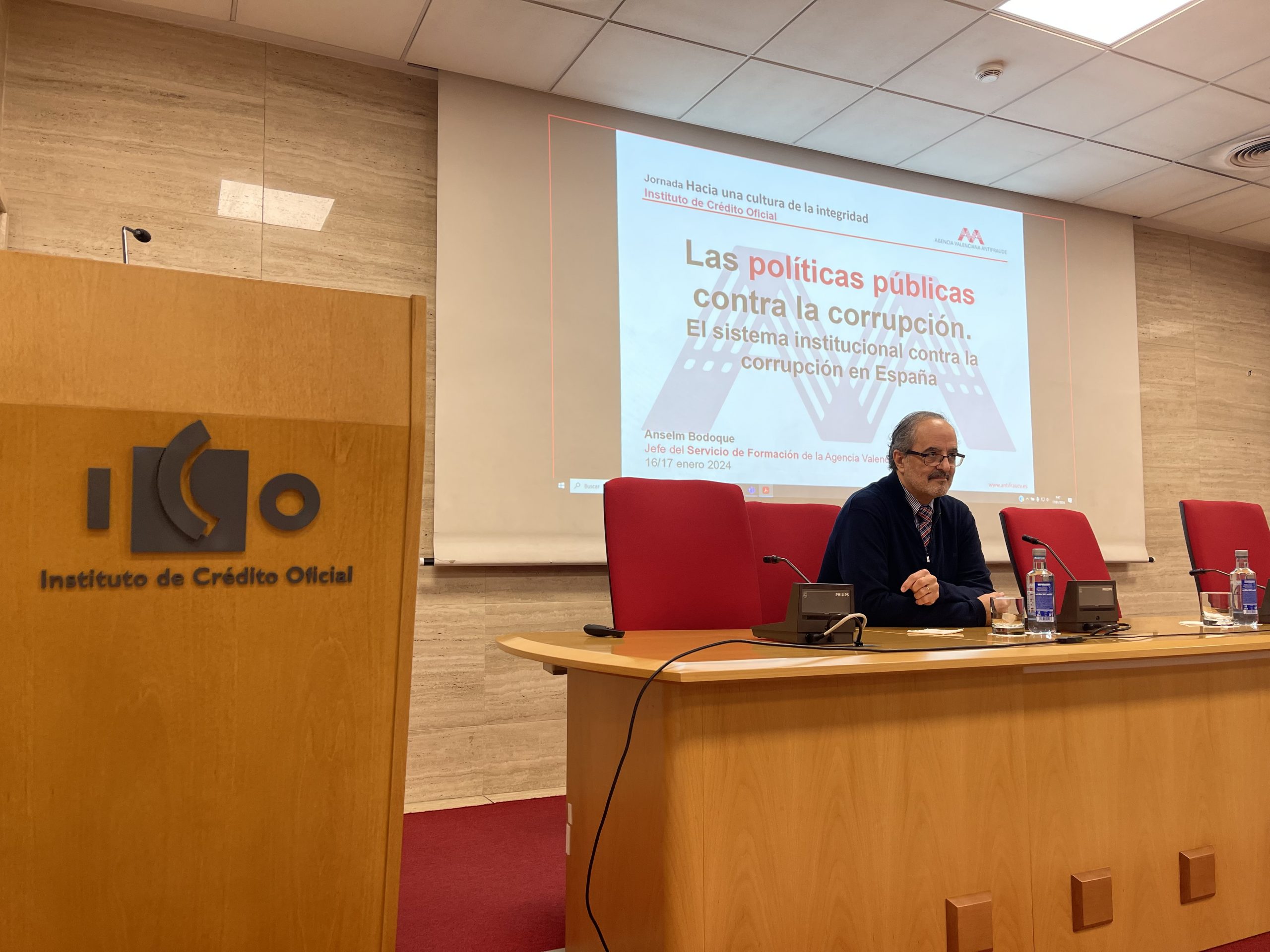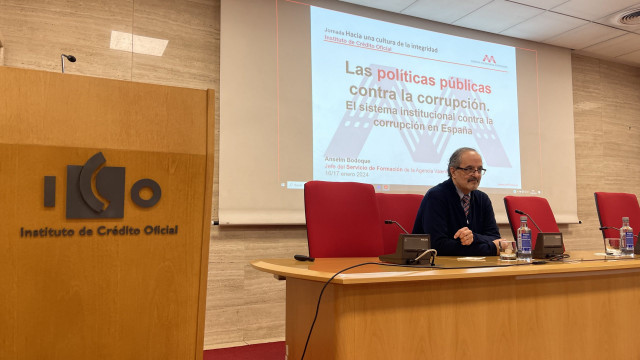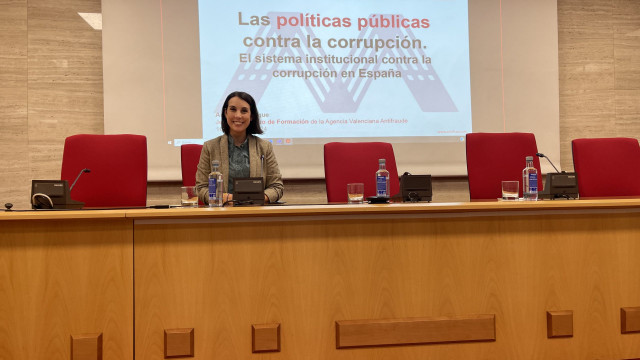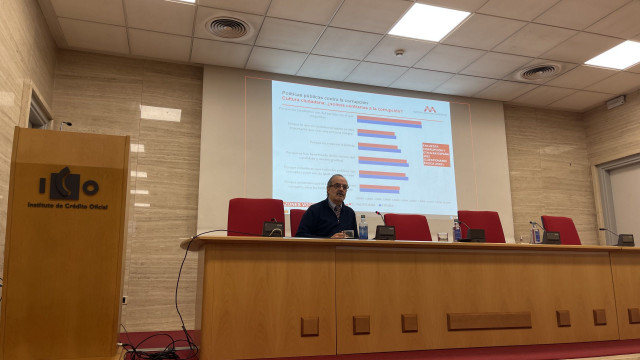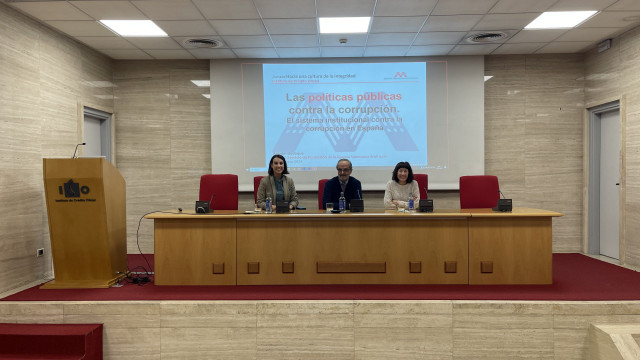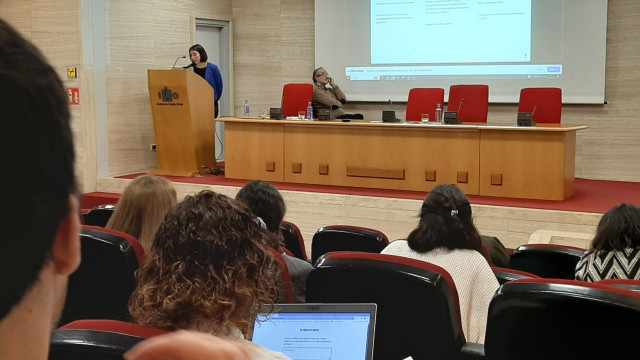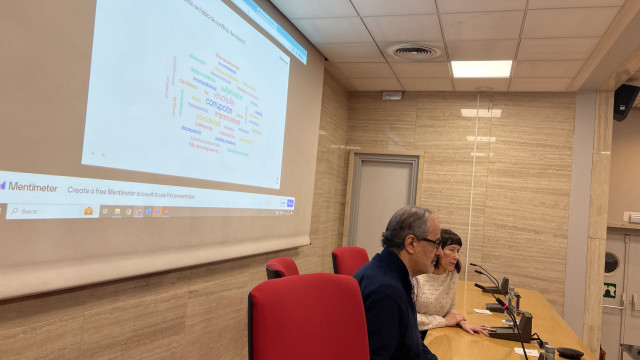#AVAFTraining
Madrid. – January 17, 2024.
The AVAF Training Service has given two training days “Towards the culture of public integrity. The cycle of anti-fraud measures in Spain” to the staff at the service of the ICO Group at its headquarters on Paseo del Prado in Madrid.
On January 16 and 17, the auditorium of the Official Credit Institute hosted presentations by Anselm Bodoque, head of the Training Service, and Pilar Moreno, AVAF training technician, as well as a participatory workshop on conflict of interest.
The ICO is a public business entity, one of those provided for in Law 40/2015, on the Legal Regime of the Public Sector, attached to the Ministry of Economy, Commerce and Business. It has the legal nature of a credit institution and is considered a State Financial Agency. The ICO Group is constituted, in addition to the Official Credit Institute, by Axis, a venture capital company and by the ICO Foundation.
In his interventions, Anselm Bodoque highlighted the construction of the international, European, national and regional integrity system, as well as the emergence of public policies on anti-fraud. In the presentations given, Pilar Moreno explained the importance of public integrity as a route towards the transformation of the organizational culture of public institutions, together with the preventive tools and detection of regulatory infractions present in the Spanish legal system.
In the presentations given, Pilar Moreno explained the importance of public integrity as a route towards the transformation of the organizational culture of public institutions, together with the preventive tools and detection of regulatory infractions present in the Spanish legal system.
The active participation of attendees was evident in the workshops on conflict of interest given to ICO Group staff. Those present had the opportunity to reflect on the mechanisms that allow adequate management of this situation that can materialize at any time in the administrative management of personnel serving the public administration.
The protection of informants along with anonymity in the presentation of communications through information systems were some of the issues raised by those attending the training offered by the AVAF.
The Valencian Anti-Fraud Agency, with the beginning of the training collaboration with the ICO Group, is strengthened as a reference in training, a task included in the institution’s operating regulations.
The Training Service thanks the Human Capital and Regulatory Compliance Unit of the ICO for its collaboration in promoting training in ethics and public integrity of personnel serving citizens.


